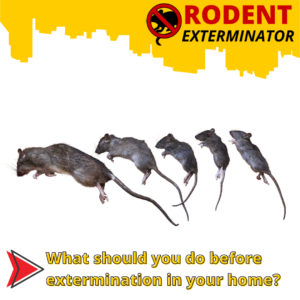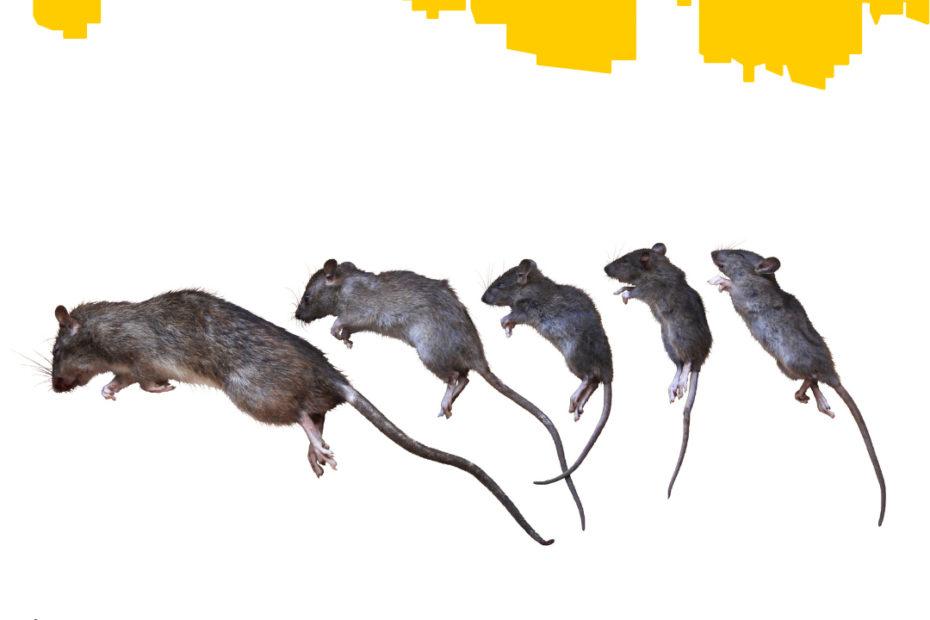Many people are unaware that they will need to do some work at their house or company before the exterminator arrives.
Some pest control companies will refuse to treat a property that has not been adequately prepared before their visit.
Before you have any extermination done in your home, there are a few things you should do.
You should remove all of your food and water sources, as well as seal off any small cracks or openings that the pests could use to get back in.
Once you’ve done all of that, you can contact a professional exterminator. They will be able to get rid of the pests for good and ensure that they don’t come back.
 What to do in your house before the extermination?
What to do in your house before the extermination?
We share some tips on how to best prepare for an exterminator in your home or business environment to keep the pest specialist happy and ensure the most effective treatment possible:
- Remove all soiled dishes from sinks.
- Vacuum your home regularly and wipe down your countertops to remove any lingering water.
- Keep all perishables and food in airtight containers.
- All paper items and products must be disposed of or put away.
- Remove clutter where rodents could hide by storing items in drawers or closets.
- Furniture and heavy appliances should be moved away from walls.
- Sheets or towels can be used to cover cages and aquariums.
Should you clean before an exterminator comes?
Yes, you should.
You should commit to keeping your home as tidy and clean as possible. This helps to eliminate insect food sources, making the bait more appealing.
If you’re preparing your home before the exterminators arrive, remember to protect your valuables during the infestation.
How do you prepare for a kitchen exterminator?
According to exterminators, here are some of the favorite tips you can do for your kitchen to keep unwanted rodents out:
- All cupboard and closet doors, as well as kitchen drawers, should be opened.
- Remove any foodstuffs from the cupboards and drawers, and those that have been opened should be discarded.
- Disinfect the space by removing all plates, flatware, cooking utensils, and tabletop food preparation appliances.
- Check to see if the kitchen is dry.
- Remove all of the clutter from your kitchen.
- Plastic bags should not be kept in your cabinets.
- Don’t leave any food on the counter.
- Remove any little food strews.
- Because a lot of food scraps and crumbs fall between your counters and the edges of your stove and refrigerator, clean under them.
What should you do with your children before extermination?
Before extermination, it is important to make sure your children are taken care of. We recommend:
- You should remove all food and water sources, as well as any pet food bowls.
- You should also clear away any clutter so the exterminators can get to all of the areas they need to treat.
- You should make sure all of your windows and doors are closed so the exterminators can do their job.
- You should also stay out of the house until it’s been treated.
It is necessary to consider that pesticide poisoning is especially dangerous to youngsters since their brains and nervous systems are still developing.
Children’s bodies are still growing, so they have fewer natural defenses and can develop major health problems from pesticide exposure.
What should you do with your pet before extermination?
If you have pets, you should also consider them before extermination. All food and water bowls should be removed, and the pet should be kept out of the house until it’s been treated.
If you have pets, consider relocating them for the day or a few hours.
If you have neighbors, acquaintances, or family members who can care for the animals while you are undergoing treatment, please do so.
The procedure can also be stressful for a pet’s emotional well-being.
When visitors in heavy gear enter their home, many household dogs experience anxiety, stress, and fear. Dogs, in particular, may become agitated and disturb the exterminators.
Remove pet beds, water bowls, and toys before your pest control treatment to avoid pesticides sticking to them.
Also, all pet food and treats should be covered.
Fish, snakes, and birds can all be harmed by pesticides.
Pets in cages should be relocated or covered properly. To keep airborne insecticides out of tanks or birdcages, cover them with a towel or sheet.
Because certain birds have delicate respiratory systems, they may need to be removed from the house during pest control treatment.
Call your veterinarian for assistance if you’re unclear what to do with your caged pet during a pest control treatment.
In conclusion, it’s important to take care of your family and pets before extermination, as they can be affected by the process. Make sure you remove all food and water sources, as well as any small toys or objects that could be dangerous.
Once you’ve done that, contact a professional exterminator who will be able to take care of the pests for good.
If you are looking for professionals in rodent extermination and control, you can contact Rodent Exterminator!
We provide the best services with the utmost precaution to take care of you, your family, your pets, and your home. Call us 213-431-0890

